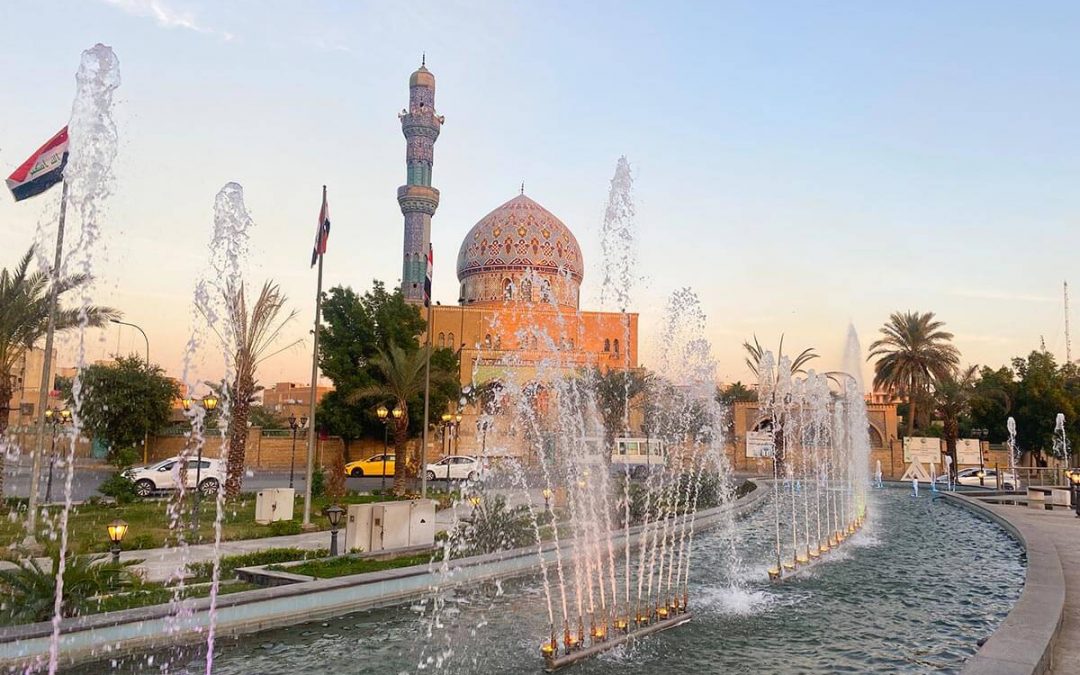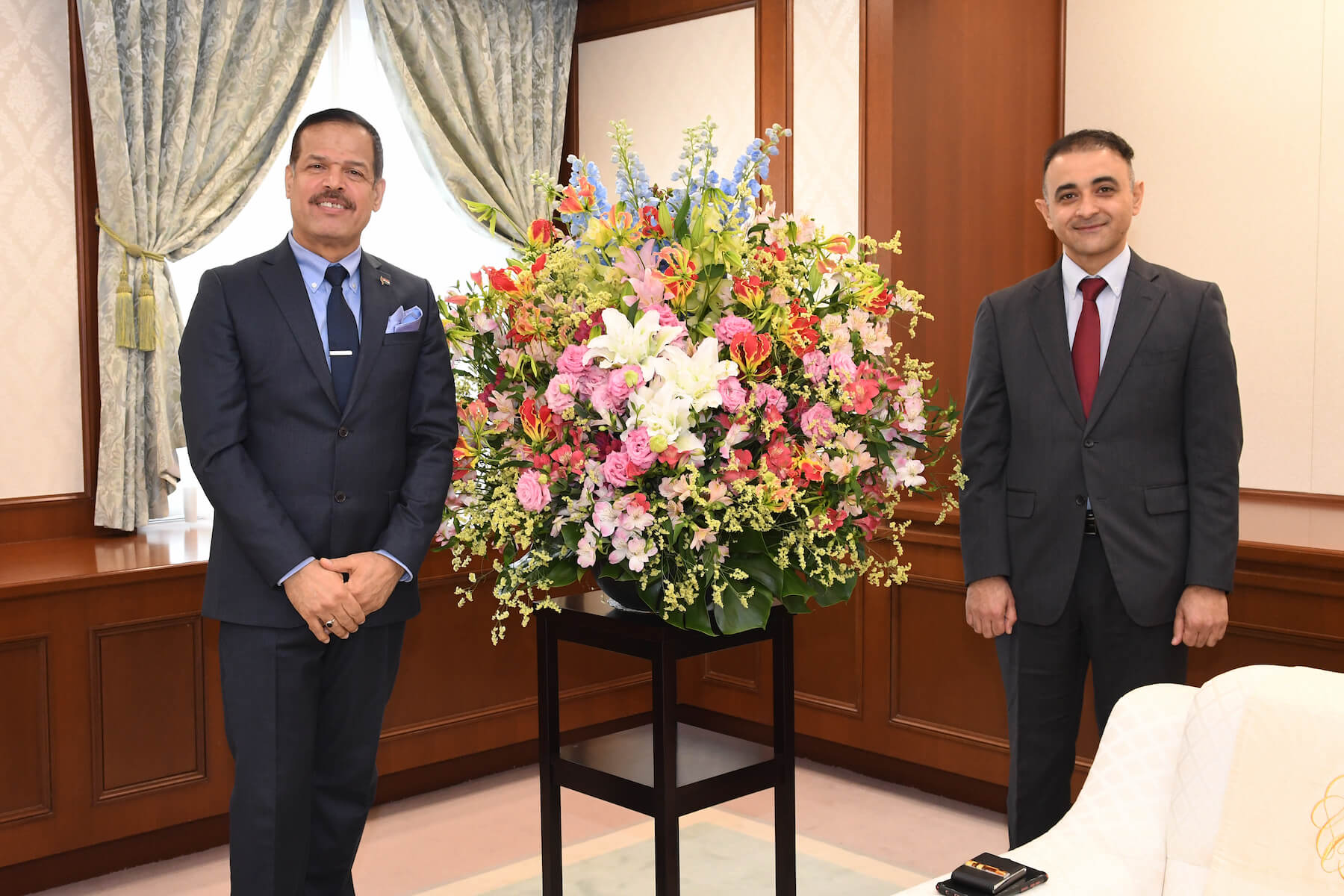Welcome to Min-On’s Music Journey! Today, the Min-On Concert Association and the Embassy of the Republic of Iraq to Japan welcome you to Iraq, the Middle Eastern country with an enduring history.
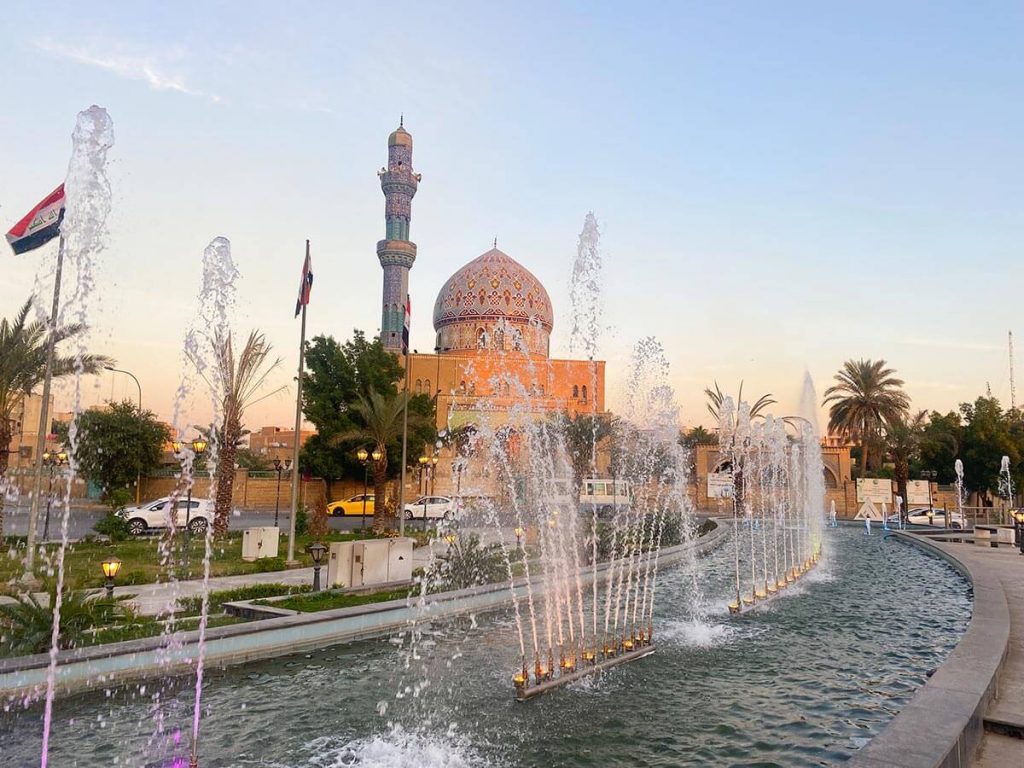
Iraq is “the cradle of civilization,” where the Mesopotamian civilization, said to be the oldest in the world, originally developed. Thanks to the blessings of two large rivers, the Tigris and the Euphrates, it has flourished as one of the most fertile agricultural areas on Earth since antiquity.
| Travel guide for Iraq: ・Learn about the history of the capital, Baghdad ・Taste Mesopotamian cuisine with a history of 10,000 years ・Experience Iraqi music culture unique to this region |
The lands of Iraq are home to several World Heritage Sites and many other historic structures built over its long history. Join us today as we visit many notable places in Iraq while enjoying Iraqi music.
Baghdad, the Capital of Iraq, the setting of Arabian Nights
Baghdad is also the country’s most populous city, housing 7.3 million people. Baghdad’s history spans many centuries, having first been built as the capital of the Abbasid Caliphate in the 8th century, when it flourished as the center of Islamic civilization.
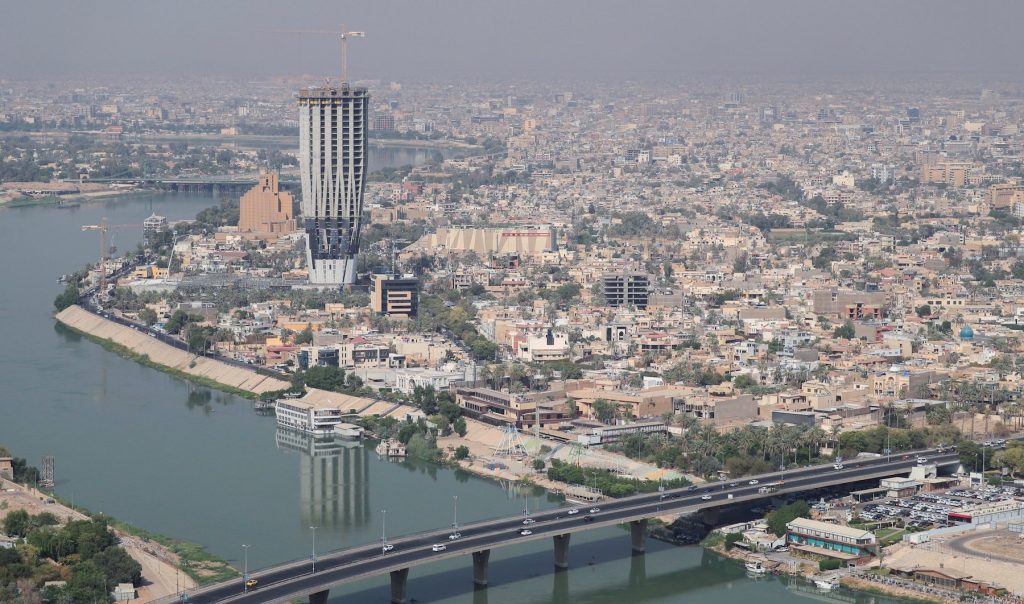
During this period, Baghdad was called the City of Peace, flourishing as a major city with a population of about one million people. Multiple ethnicities coexisted here under the teachings of Islam. An advanced civilization known for next-generation discoveries in science, medicine and many other fields developed here.

This civilization’s understanding of economics was especially advanced. Many mechanisms that form the foundation of modern capitalism were established here 1,100 years ago, including a unified system of weights and measures, the acceptance of loans and the systematization of marketplaces. The story and setting of 1,001 Nights (Arabian Nights) also speak to the level of Baghdad’s cultural sophistication at the time.
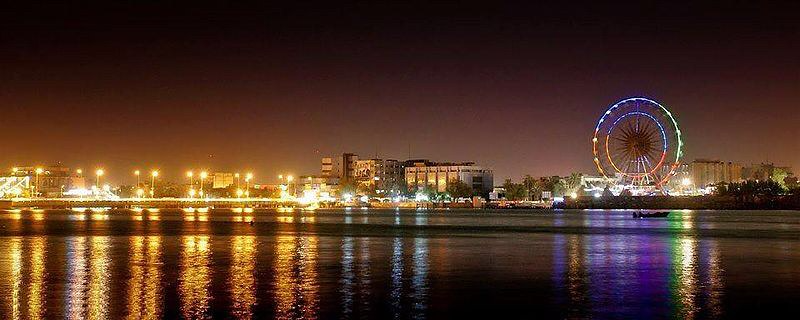
A fortified wall seven kilometers in circumference surrounds Baghdad’s city center. Major roads linking the city to others throughout Eurasia lead from the wall’s four gates, which point in all four cardinal directions. Each road was originally a major trade route that supported the Islamic empire’s economy. One of the routes even extended through to Northern Europe, all the way to Sweden.
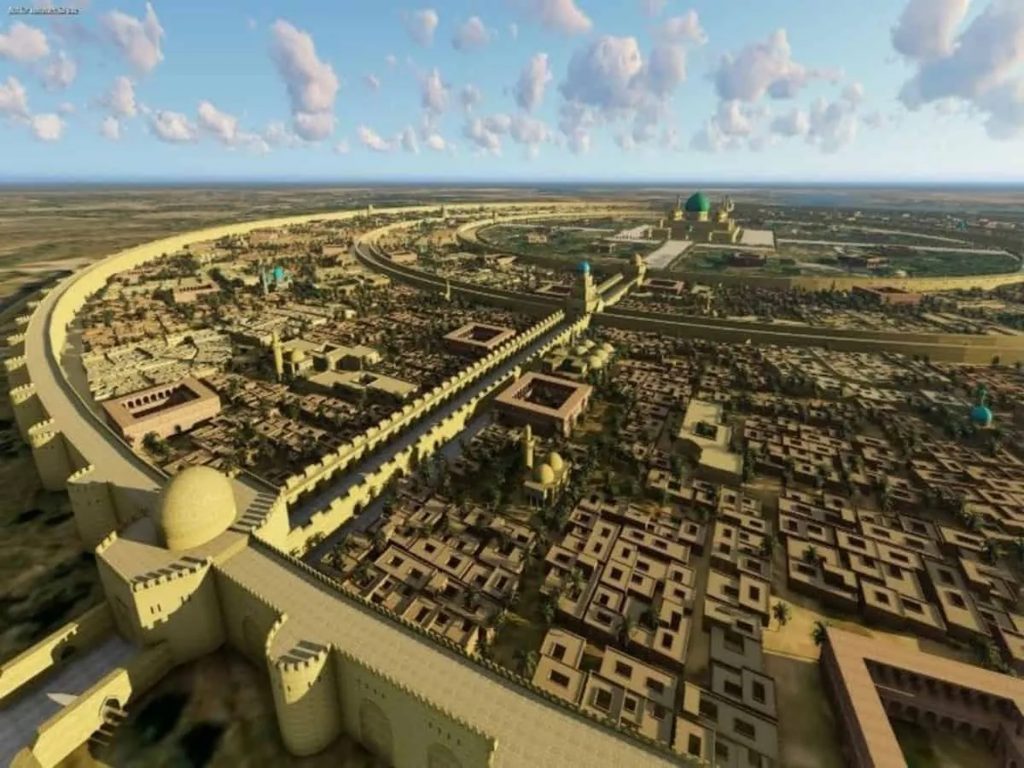
Six World Heritage Sites
Iraq has six World Heritage Sites, each representing a different era in Iraq’s rich history. Each site has remarkable historic value, with many fascinating secrets still buried therein, including ruins still shrouded in unsolved mysteries today.
| Samarra Archaeological City ・Ruins of an city during the era of the Abbasid Caliphate ・Known for its spiral minaret (small tower atop the mosque), one of only three in the world 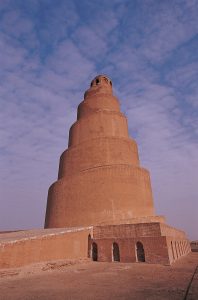 |
| Babylon ・The heart of the Babylonian Empire, which flourished over 4,000 years ago ・A mere 18% of these ruins spanning 10 square kilometers has been excavated so far  |
| Erbil Citadel ・The oldest human settlement in the world, having been inhabited since prehistoric times ・This World Heritage Site is shrouded in mystery, as the details of how it was built are still unknown 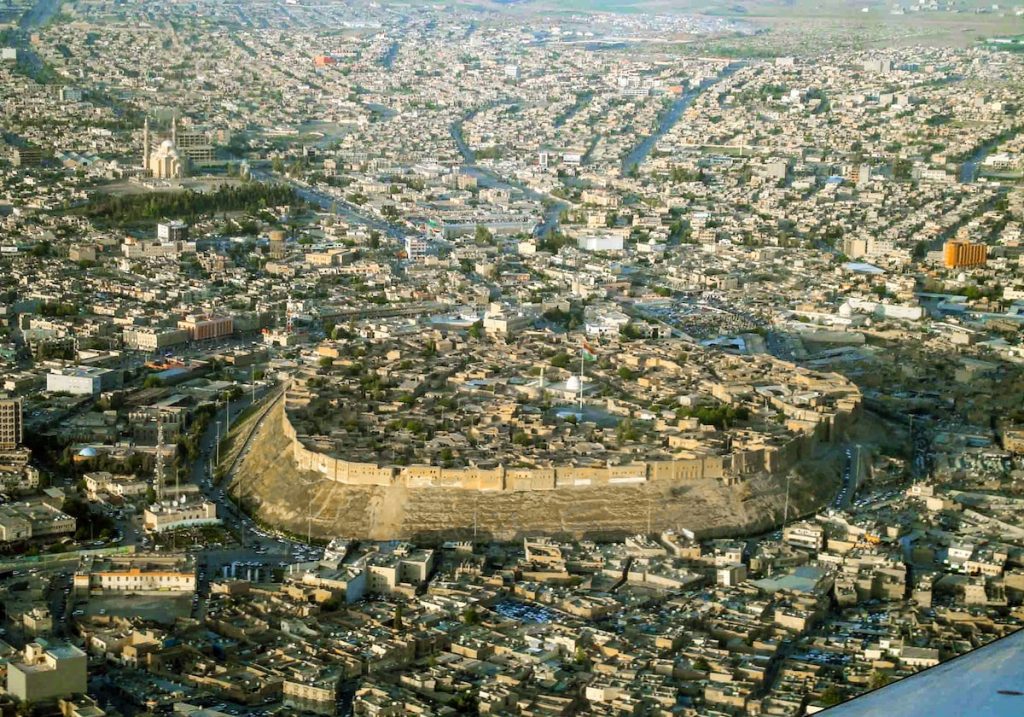 |
| Hatra ・Fortified city of the Parthian Empire also called “the House of God” 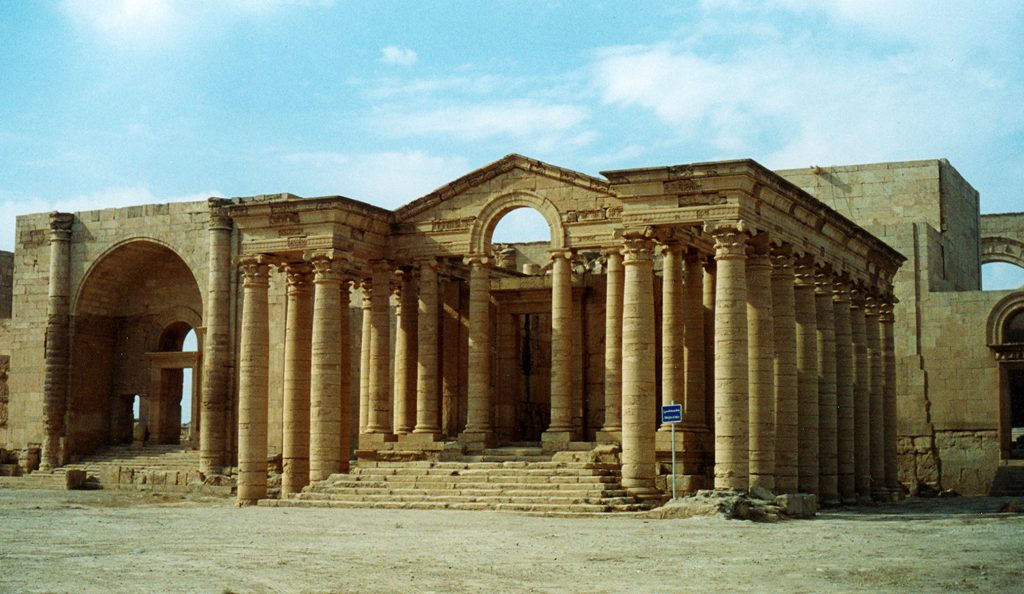 |
| Ashur (Qal’at Sherqat) ・First capital of the Assyrian Empire 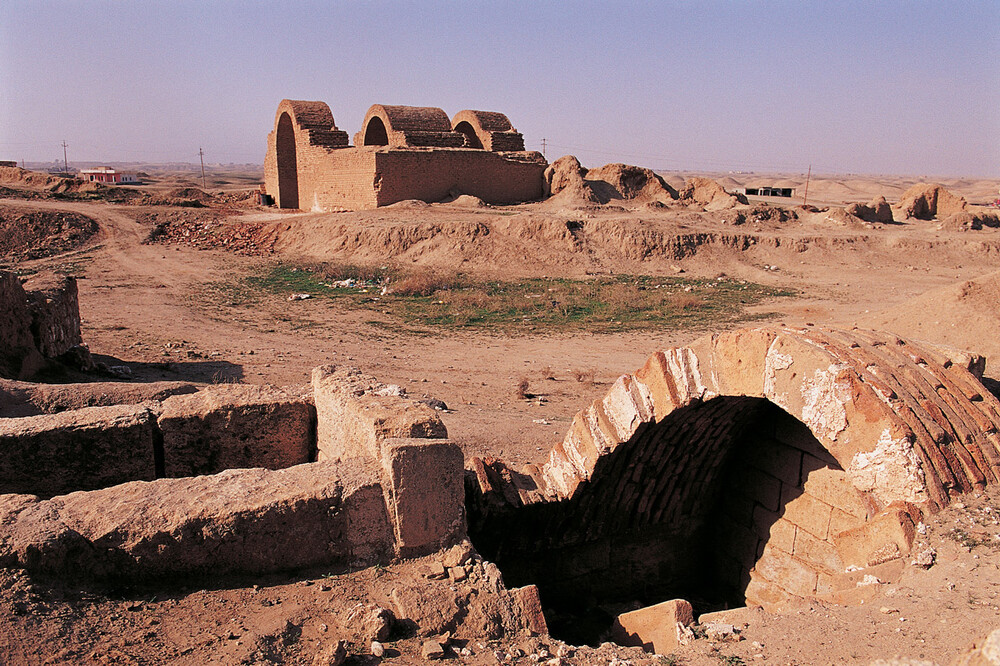 |
| The Ahwar of Southern Iraq: Refuge of Biodiversity and the Relict Landscape of the Mesopotamian Cities ・Ruins of an ancient city and wetlands inhabited by a diverse variety of animals  |
Culinary culture dating back over 10,000 years
Mesopotamian civilization was born in this region, the first known civilization where food supplies were managed through farming and raising livestock. The cuisine in Iraq could also be called “Mesopotamian,” of the same roots that allowed humanity to flourish in this region for over ten millennia. On today’s journey, we’d like to introduce the two iconic Iraqi dishes below.
Masgouf
In this hearty dish, huge carp found in the Tigris and the Euphrates Rivers are sliced lengthways, seasoned with spices and stewed whole. This is the national dish of Iraq, and it’s easy to find stalls selling fish and iron pots throughout the city.

 Quzi
Quzi
This Iraqi dish features lamb and rice. Quzi is traditionally prepared by slow cooking lamb until the meat falls off the bone, then serving it over rice with roasted nuts and raisins on a large platter.
Musical culture with diverse roots
Iraq lies the furthest east among the Arab nations, and for this reason, its rich musical culture based in Arabic music also incorporates elements of Persian and Central Asian musical culture. The hallmark of Arabic music is called maqam, a unique system of melodic modes. In Baghdad, this has further developed into a more urban style called Iraqi maqam.
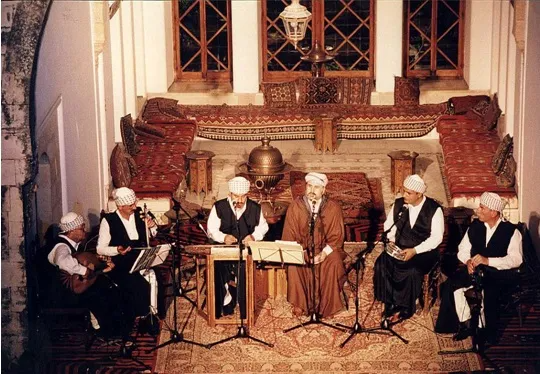
Iraqi music is also known for the santur, a traditional Persian instrument, and many diverse traditional instruments, including Arabic folk instruments.
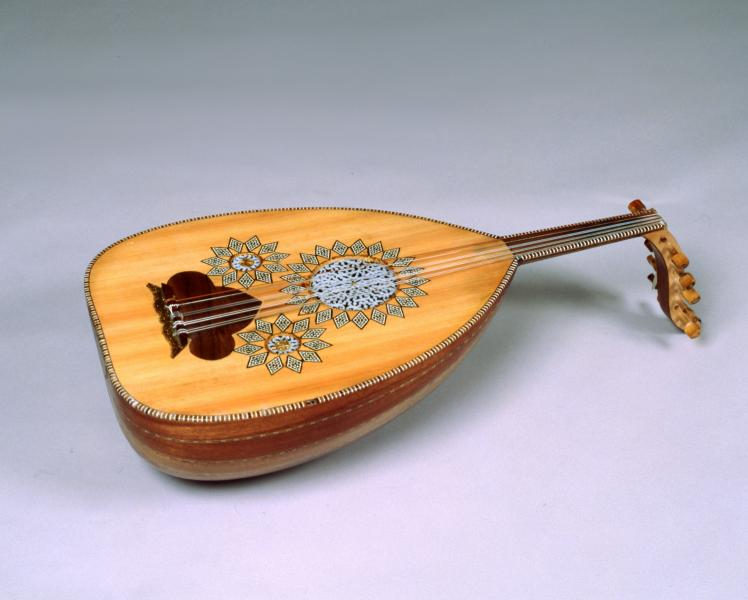 |
Oud A string instrument closely related to the lute and biwa. Its body uses alternating strips of woods like rosewood, ebony, hornbeam and walnut, allowing it to resonate beautifully and produce a rich sound. |
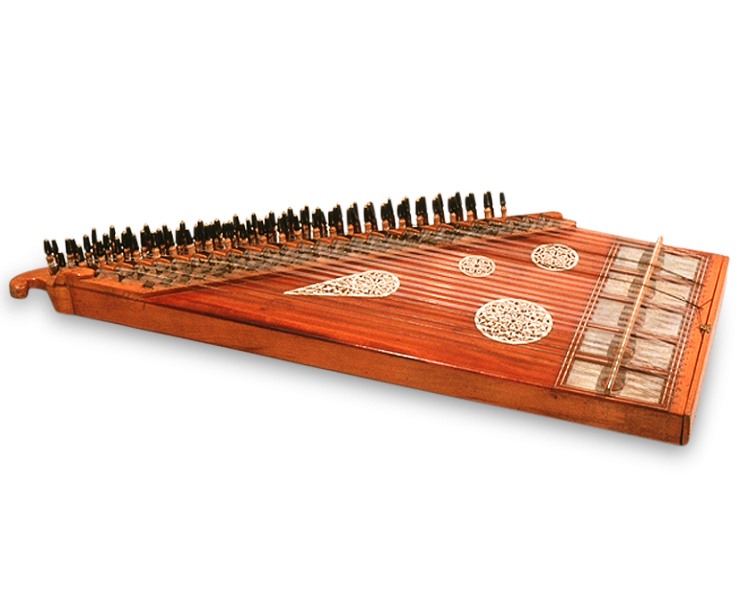 |
Qanoon A traditional Arabic stringed instrument featuring a large number of strings stretched over a trapezoidal box. |
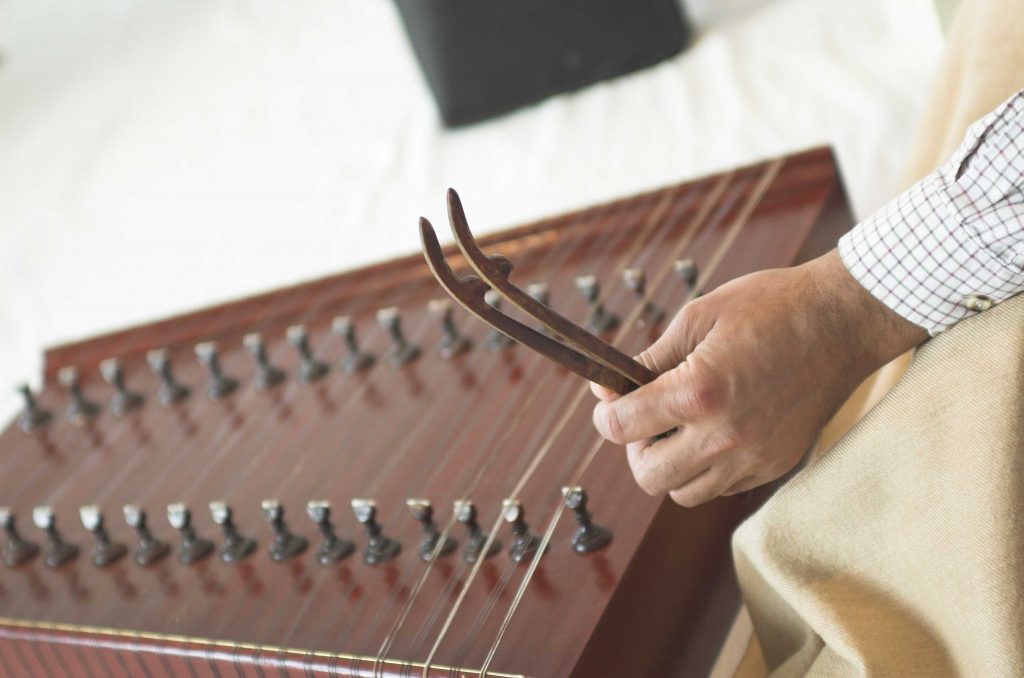 |
Santur A percussion-string instrument featuring strings stretched over a trapezoidal wooden body. One of the predecessors of the piano. |
Min-On has hosted musicians from Iraq in its Musical Voyages along the Silk Road series, which it has held 11 times since 1979. The world’s finest singers and musicians have been welcomed to Japan for this concert series. This event is a beautiful source of cultural exchange, for not just the audience, but also among the musicians who come to perform.
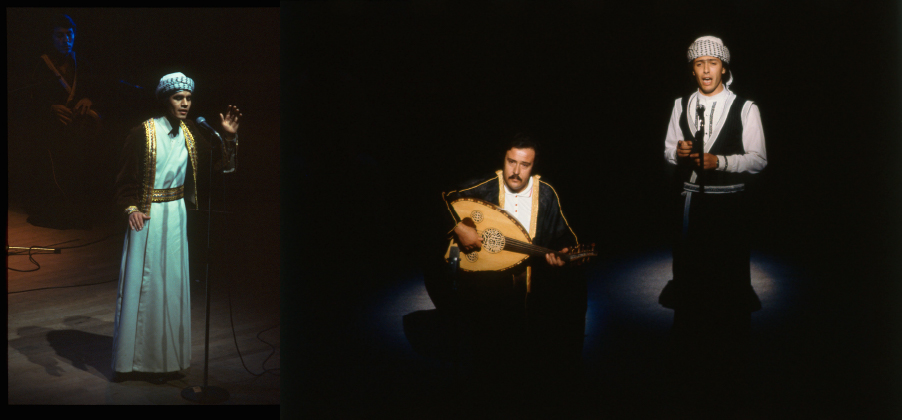
A Musical Voyage along the Silk Road in 1979 (left) and 1981 (right)
Musicians recommended by the Embassy of the Republic of Iraq to Japan
In closing, we would like to introduce musicians recommended by the Embassy of the Republic of Iraq to Japan.
1. Cities of Daffodils - Naseer Shamma
2. Arabian string instrument (Qanoon) -Iraqi LAMI music (LAMI Maqam)
3. Maqam Lami OUD NAY -Saif Alkhayyat (Oud), Rageed William (Nay)
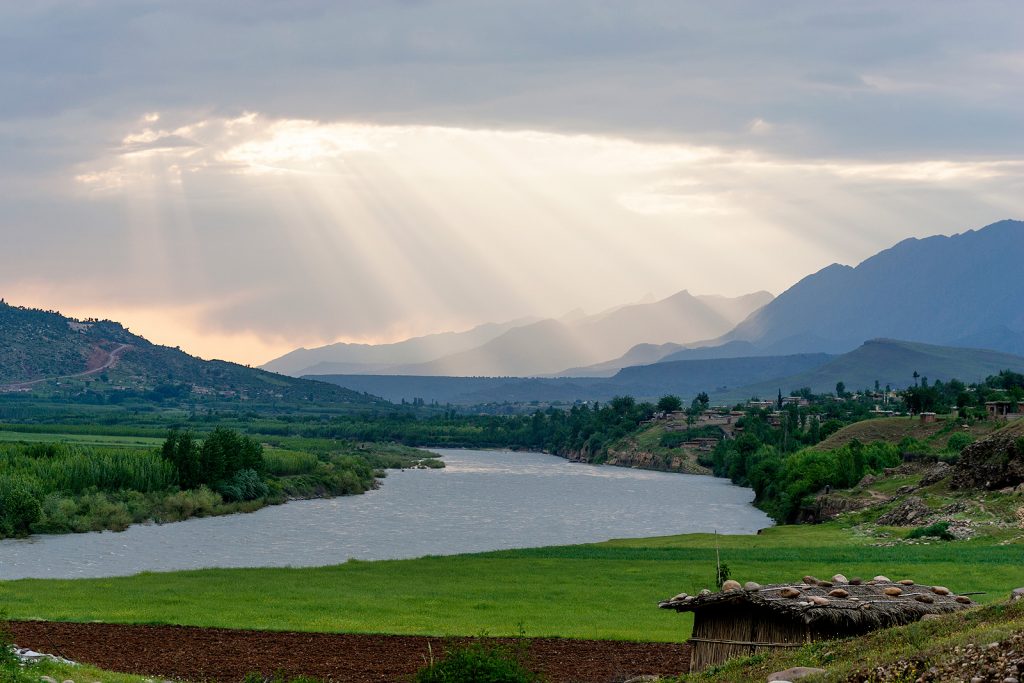 The Tigris Rivers
The Tigris Rivers
What did you think of your music journey to Iraq? There are still many more places to go! Please look forward to our next destination.
(Produced in collaboration with the Embassy of the Republic of Iraq to Japan, who also provided photos.)
Min-On Concert Association
-Music Binds Our Hearts-


